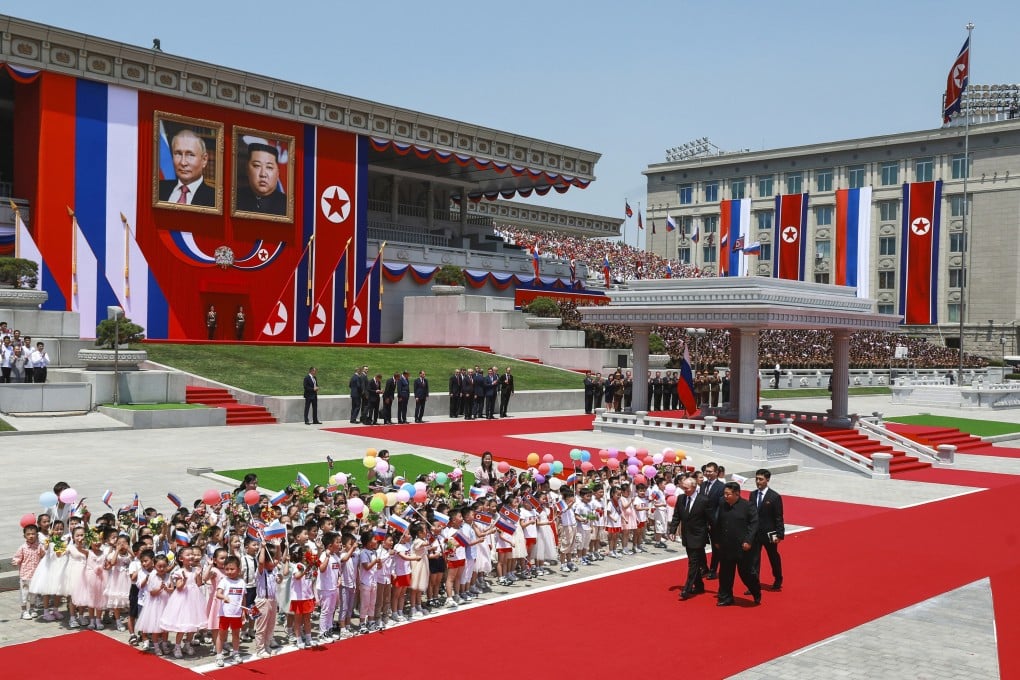Advertisement
Opinion | Why warmer North Korea-Russia ties could be trouble for Northeast Asia
- Pyongyang and Moscow moving closer together is reason to concern all of Northeast Asia, including China, formerly North Korea’s sole ally
Reading Time:3 minutes
Why you can trust SCMP
3

Amid an array of Russian flags and flattering portraits, Russian President Vladimir Putin landed in North Korea for the first time in 24 years last week, highlighting changing security dynamics in East Asia which could have deep implications.
Advertisement
The visit took place against the backdrop of the suspension of the Comprehensive Military Agreement, signed by North and South Korea in 2018. The treaty formalised the suspension of live-fire drills, removal of some guard posts and implementation of a no-fly zone, among other measures, and its suspension further destabilised conditions on the Korean peninsula.
Putin and North Korean leader Kim Jong-un signed the Treaty on Comprehensive Strategic Partnership, providing a legal framework for a long-term agreement that is “strictly peace-loving and defensive” in nature. Hailed by North Korean state news agency KCNA as an “engine for accelerating the building of a new multipolar world”, the treaty formalises and gives strength to the emerging defence partnership between Russia and North Korea.
In addition to exacerbating tensions between the two Koreas, Putin’s visit is also a major cause of concern for the United States and its allies in the region. Perhaps the most worrying is the inclusion of a mutual defence clause, establishing the scope for support in case either Russia or North Korea are invaded. The two have also not ruled out the possibility of military-technical cooperation in the future.
The US has portrayed the agreement as a destabilising factor on the Korean peninsula. US Secretary of State Antony Blinken said during a call with South Korean Foreign Minister Cho Tae-yul that the deepening ties between North Korea and Russia reaffirmed the vital importance of the US-South Korea alliance in promoting peace, security and prosperity around the world.
Advertisement
South Korea has announced its own set of measures as a response. Calling the Russia-North Korea pact a direct threat to its national security, Seoul said it would reconsider its position on supplying arms to Ukraine, potentially reversing a long-standing policy of not supplying arms to any nation that is engaged in conflict.

Advertisement
